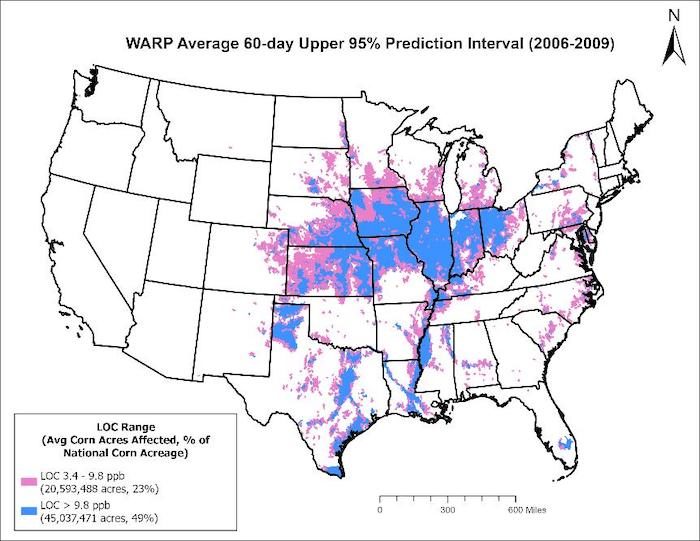The U.S. Environmental Protection Agency has agreed with companies and agriculture groups that additional time is needed to comment on proposed rule changes for atrazine.
The EPA issued a 30-day extension to the public comment window on Aug. 2 in response to requests by multiple agriculture organizations, as well as comments by Syngenta, which uses atrazine in its products.
Comments will now be accepted until Oct. 7. They had been slated to close in September, according to EPA documents.
Comments can be submitted online, via mail or e-mail.
The proposed rules would reduce the concentration equivalent level of concern equivalent from 15 parts per billion to 3.4 parts per billion, reduce atrazine usage to a maximum of 2 pounds per acre per year, prohibit aerial spraying, and ban atrazine applications to saturated soils, as well as within 48 hours of forecast heavy precipitation events.
Growers in areas where the concentration equivalent level of concern would exceed 3.4 parts per billion would be required to apply mitigation measures from lists furnished by the EPA.
In response to the proposed changes, several groups, including the Michigan Farm Bureau have launched campaigns to collect e-signatures from concerned farmers.
The Triazine Group, a coalition of several agricultural groups, has blasted the EPA's decision to reopen consideration of a prior decision as "radical."
"Farmers rely on atrazine’s long-lasting weed control, and it is especially important as an aid to help farmers successfully use sustainable farming practices like conservation tillage and no-till," the group wrote. "Placing severe limits on atrazine will have broad implications considering that atrazine is a key component in over 90 herbicide mixtures farmers rely upon. Atrazine has been on the market for over 60 years. No herbicide has been studied more or has a longer safety record."
Alongside trade groups, individuals have also submitted comments to the EPA over the last 30 days. Submitted comments have included a mix of people with agricultural backgrounds calling for EPA to avoid implementing the rule change, as well as people
"This 3.4 ppb LOC proposal is bad science, bad policy, bad agriculture, bad economics, and must not be adopted, as it will cause extensive harm with no real benefit," wrote Gary Straus in one comment.







